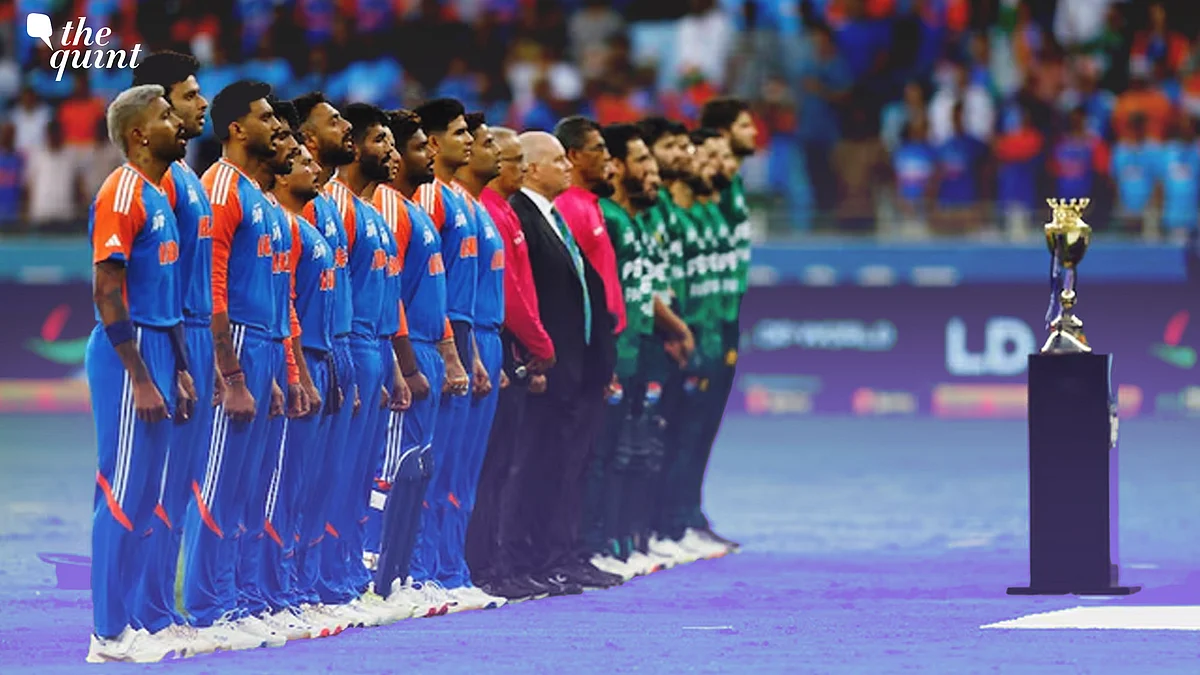Sports
India and Pakistan Clash Over Handshake Controversy in Asia Cup

The Asia Cup has taken center stage for reasons far beyond cricket, particularly following the absence of handshakes between India and Pakistan during their match on September 14, 2025. This decision has sparked widespread debate, overshadowing the actual game, which India won decisively. While the players excelled on the field, the refusal to engage in a customary handshake has raised questions about sportsmanship and the impact of political tensions on sporting events.
The backdrop to the handshake controversy is rooted in the **Pahalgam attack** on April 22, which resulted in the loss of 22 innocent lives. India has attributed this act to Pakistan, leading to heightened tensions between the two nations. The Indian team, captained by Suryakumar Yadav, opted to treat the match as a strictly professional commitment, foregoing traditional gestures of goodwill.
Yadav faced scrutiny for previously greeting Pakistan’s captain, **Salman Ali Agha**, at a pre-tournament press conference. In a statement regarding the lack of handshakes, he said, “We came here to only play. We gave a proper reply. Few things are ahead of sportsman spirit. We stand with all victims of the Pahalgam terror attack and dedicate it to armed forces who took part in Operation Sindoor.”
The incident raises the question of whether India’s actions violated the spirit of the game. The International Cricket Council (ICC) emphasizes respect in its Playing Conditions, which outlines the importance of fair play and sportsmanship. Yet, there is no explicit regulation mandating handshakes before or after matches. While tradition dictates that handshakes are a sign of sportsmanship, it does not equate to a legal requirement within cricket’s framework.
The ICC Code of Conduct outlines various grounds for penalties, including excessive appealing and inappropriate comments. However, refusal to shake hands does not fall under these categories. Thus, it is unlikely that India will face any official repercussions for this action. The integrity of the game remains intact as long as players conduct themselves professionally, which Yadav and his team did throughout the match.
Pakistan has expressed its displeasure at India’s stance. Match referee **Andy Pycroft** informed the Pakistani team of India’s decision not to engage in handshakes, leading to a formal protest from the **Pakistan Cricket Board**. The board’s manager, **Naveed Akram Cheema**, criticized Pycroft’s role in the situation, claiming it was unacceptable for him to relay India’s decision. However, the ICC has reportedly rejected Pakistan’s request to remove Pycroft from the Asia Cup, affirming that he was merely following instructions.
Despite the dispute, the match concluded without physical confrontation. Pakistan’s coach, **Mike Hesson**, expressed disappointment, stating, “We wanted to shake hands but were disappointed that the opposition didn’t do that.”
Historically, handshake controversies have occurred in cricket, often tied to broader social issues. In 2023, the Scottish team refused to shake hands with Nepal’s **Sandeep Lamichhane** amid serious allegations against him. Similarly, in domestic cricket, tensions have arisen over contentious plays, which have led to teams refusing to acknowledge one another post-match.
The current situation raises additional questions about the future of India-Pakistan encounters in sports. With both teams likely to meet again in various competitions, including the ICC Women’s World Cup and potentially in athletics, the issue of handshakes looms large. If India secures victory in the Asia Cup, the presentation ceremony will be led by **Mohsin Naqvi**, the ACC President and a Pakistani politician, who has already criticized the lack of sportsmanship displayed during the match.
As India prepares to host significant international sporting events in the coming years, including the **Commonwealth Games** in 2030 and the **Olympics** in 2036, navigating the intersection of politics and sport becomes increasingly critical. The Olympic Charter mandates that host nations allow participation without discrimination based on nationality or political stance, highlighting the challenges that lie ahead for Indian sports administration.
The handshake controversy encapsulates a broader narrative of nationalism and sports, raising the question of whether cricketers should bear the weight of political tensions. As the Asia Cup progresses, the cricketing world watches closely to see how this saga unfolds and whether future encounters will continue to be marred by political undertones.
-

 World5 months ago
World5 months agoSBI Announces QIP Floor Price at ₹811.05 Per Share
-

 Lifestyle5 months ago
Lifestyle5 months agoCept Unveils ₹3.1 Crore Urban Mobility Plan for Sustainable Growth
-

 Science4 months ago
Science4 months agoNew Blood Group Discovered in South Indian Woman at Rotary Centre
-

 World5 months ago
World5 months agoTorrential Rains Cause Flash Flooding in New York and New Jersey
-

 Top Stories5 months ago
Top Stories5 months agoKonkani Cultural Organisation to Host Pearl Jubilee in Abu Dhabi
-

 Sports4 months ago
Sports4 months agoBroad Advocates for Bowling Change Ahead of Final Test Against India
-

 Science5 months ago
Science5 months agoNothing Headphone 1 Review: A Bold Contender in Audio Design
-

 Top Stories5 months ago
Top Stories5 months agoAir India Crash Investigation Highlights Boeing Fuel Switch Concerns
-

 Business5 months ago
Business5 months agoIndian Stock Market Rebounds: Sensex and Nifty Rise After Four-Day Decline
-

 Sports4 months ago
Sports4 months agoCristian Totti Retires at 19: Pressure of Fame Takes Toll
-

 Politics5 months ago
Politics5 months agoAbandoned Doberman Finds New Home After Journey to Prague
-

 Top Stories5 months ago
Top Stories5 months agoPatna Bank Manager Abhishek Varun Found Dead in Well









